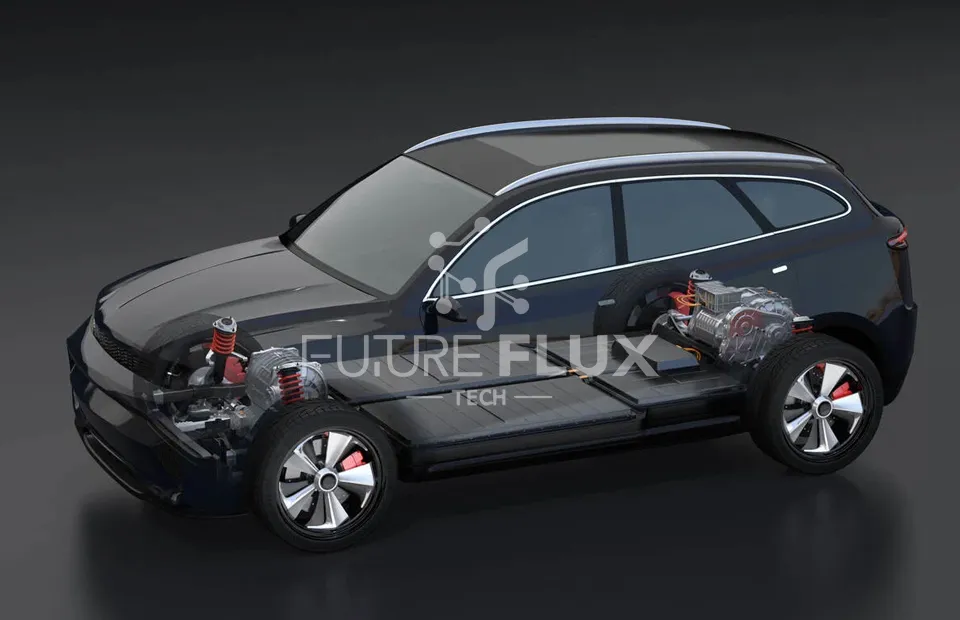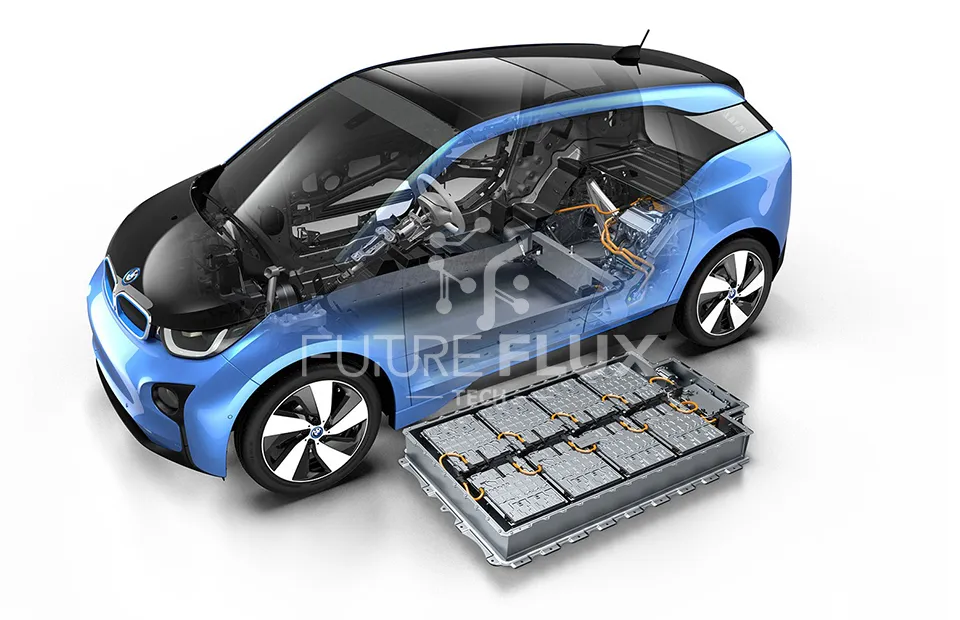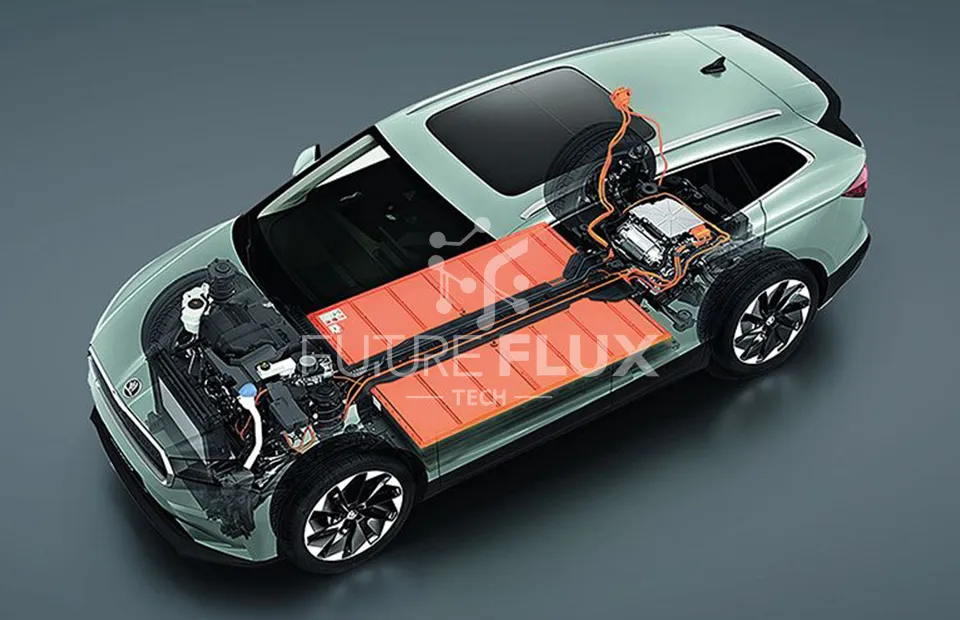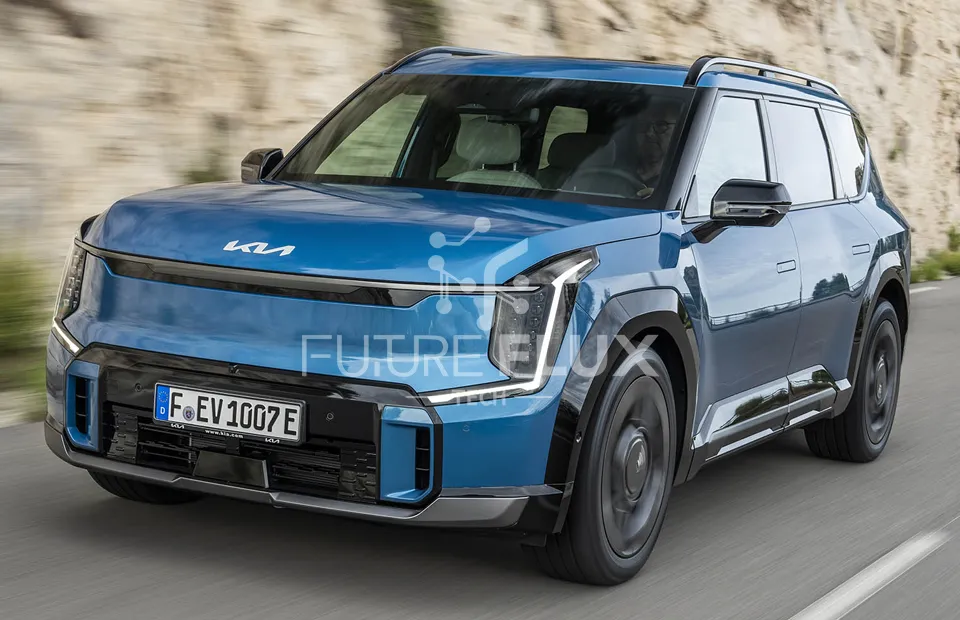In the last couple of years, the auto industry worldwide has rapidly shifted towards EVs due to the urgent call for action regarding climate change and to reduce dependence on fossil fuels. These developments lie at the core of EV battery technology, which is the single most critical factor in charting the course for increased driving range, shorter charging time, and better performance. Here, we discuss top electric vehicle battery manufacturers and their roles in shaping mobility.
What is an Electric Vehicle (EV) Battery?

EV batteries are specifically designed for electric vehicles. Unlike single-use batteries, which are classified for business use and non-recyclable, EV batteries are rechargeable and can be used multiple times.
Currently, manufacturers widely use lithium-ion batteries in EVs because they are lightweight, have a larger rated capacity, and offer higher energy density compared to lead-acid batteries. Moreover, experts also consider all-solid-state batteries without liquid electrolytes as the future generation of EV batteries.
Uses of EV Batteries
Manufacturers mainly install EV batteries in hybrid cars and electric vehicles. In addition to powering electric cars, experts also see them as future virtual power stations. This concerns the ability of the battery in the EVs to supply power in periods of shortage of electrical supply apart from using solar power and storage batteries, among others.
Types of EV Batteries

EV battery production companies define types of batteries in three categories
1. Lead-acid batteries
Lead-acid batteries are comparatively cheap and almost without inflammable and explosive tendencies. As a result, they are mainly used as powering batteries for auxiliary use in EVs. For example, they supply the secondary power subordinate systems, such as the air conditioner of the car and the light, for additional functionality in the case of the failure of the drive battery.
2. Lithium-Ion Batteries
Lithium-ion batteries have a higher energy density than other rechargeable batteries. Their nominal voltage is 3.6V. Furthermore, they do not have a memory effect and have high-temperature performance. However, this feature again presents its disadvantages—flammability, which designers must consider when developing cars.
3. Nickel-Metal Hydride Batteries
By contrast, nickel-metal hydride batteries use nickel hydroxide and a hydrogen storage alloy. Although their specific energy and energy density are lower than those of lithium-ion batteries, they are cheaper and less hazardous, which makes them ideal for HEVs.
Our Pick of Best Electric Vehicle Battery Manufacturers

Best electric vehicle battery makers include:
CATL
Originally from China, CATL has become the best EV battery brand in the market. That makes it the globe’s biggest supplier of batteries for electric vehicles. CATL has, therefore, strategically established itself as a frontrunner in the electric mobility revolution. The company has a highly diversified product range and offers many products to its customers. It comprises batteries for electric cars, electric buses, and electric trucks.
The company has always been unique in its way of thinking and conducting its operations and business. It allocates large proportions of its investment to research and development to boost battery technology. This has been backed up by strategic affiliations with some of the world’s auto industry titans. It enjoys a good reputation in the fast-growing niche of electric vehicles.
LG Chem
Being one of the top electric car battery manufacturers in the world today, LG Chem is one of the top EV battery companies of lithium-ion batteries for electric vehicles. The batteries manufactured by LG Chem contain new safety features and a high energy density, which will enhance performance and reliability in moderately and substantially all EV models. LG Chem’s International presence and capacity to work with manufacturers across the world make it possible to forecast the development of electrified mobility in the future.
Samsung SDI
Samsung SDI is renowned for its battery technologies, which benefit various industries, including automotive, energy storage solutions, and more. The company designs the optimum battery pack for electric vehicles, utilizing advanced lithium-ion technology to deliver high energy density and charging efficiency. Organic commitment to sustainability: offer bio solutions, eco-products, and recycling systems for a sustainable future in progress.
BYD Company Limited
BYD Company Limited, a Chinese company, has grown significantly over the years. It has established a strong reputation in the production of electric vehicles and battery manufacturing facilities. BYD manufactures electric bikes, scooters, cars, buses, trucks, and three-wheelers. The company also offers passenger cars. BYD’s efforts have played a crucial role in promoting electric mobility solutions.
BYD’s Blade Battery technology employs unique safety-enhancing features, which will be discussed herein. Recent interest has focused on its rank of 36, which indicates a high energy density. The company’s focus on sustainability stems from the pursuit to reduce carbon footprint and provide society with environmentally friendly means of transport.
SK Innovation
SK Innovation, an international energy company, is positioned as a leader in electric vehicle battery manufacturing, emphasizing lithium-ion batteries. The battery technologies by NCM and NCA give high energy density, and fast chargers tested for thermal control, improving the efficiency of electric vehicles.
Tesla
Tesla’s Elon Musk launched it in 2003, and the firm rapidly grew to become a significant player in EVs, which are synonymous with cutting-edge battery technology and sleek automobiles. Tesla produces its in-house batteries in Gigafactories around the globe, contributing to the highest density and lifetime, and uses them in models like the Model S, Model 3, and Model X.
Panasonic Corporation
Panasonic Corporation, in a strategic partnership with Tesla, is a vital member of the EV battery market leaders. The company consistently strives to increase R&D in battery technology. This dedication has helped Tesla enhance the performance and efficiency of batteries in EVs. Apart from automotive uses, Panasonic batteries are also employed in consumer electronics and RESS, showing its diversified product lineup as well as commitment to environmentally friendly innovations.
Future of EV Battery Production Companies

Future Focus | What’s Ahead for EV Battery Makers | Impact (by 2030) |
| Solid-State Batteries | Development of safer, more efficient batteries with a 50% increase in energy density compared to current lithium-ion batteries. | 50% higher energy density, 30% faster charging times |
| Sustainability Efforts | Shift towards using 80% recyclable materials and reducing the carbon footprint of battery production. | 80% recyclable materials, 40% reduction in carbon footprint |
| Regulatory Compliance | Adapting to 100% of new global regulations focused on battery safety, efficiency, and sustainability. | 100% compliance, 0 penalties or fines |
| Strategic Partnerships | Form alliances with 5+ major automotive companies to integrate new battery technologies in upcoming EV models. | 5+ key partnerships, 25% faster time-to-market for new EVs |
| Manufacturing Automation | Implementing advanced robotics and AI in 70% of production lines to cut costs and increase efficiency. | 70% automation, 20% reduction in production costs |
Conclusion
Recent breakthroughs in EV battery technology are revolutionizing the automobile industry by enabling sustainable mobility with reduced carbon emissions. The electric vehicle battery manufacturers in the United States are at the forefront of this revolution and leading the way toward a new era of vehicles. Utilizing lithium-ion technology and enhancing sustainable development, these companies
Thanks to the electric vehicle battery manufacturers, a better future for mankind based on clean and efficient technology is in sight. Now, change is imminent, and the future must become a player in the increasing electric vehicle revolution fueled by battery invention.
FAQs
1- Who is the largest manufacturer of EV batteries?
CATL was the largest facility for producing EV batteries in the world that year, generating 38% of the total 711.5 gigawatt-hours produced globally.
2- Who is making batteries for electric cars?
The three largest electric vehicle battery manufacturers (CATL, BYD, LG) have already deployed two-thirds, or 66%, of the total battery capacity.
3- What company makes most of the electric car batteries?
Chinese CATL was the largest battery supplier for EVs in June 2024, holding nearly 38% of the market share.
4- Who makes batteries for Tesla?
Tesla cooperates with multiple battery suppliers, some of which are Panasonic, Tesla’s long-term supplier, and LG Energy Solutions, the second-largest battery supplier in the world. LG Energy Solutions provides the EV maker with cells containing nickel and cobalt.
I’m Waqas, an electric vehicle enthusiast and tech writer with over 6 years of experience covering the EV industry. I write in-depth articles, comparisons, and reviews to help readers understand the fast-evolving world of electric mobility. From battery technology to EV launches and charging trends, I aim to make complex EV topics simple, engaging, and informative for everyday drivers and curious readers alike.





